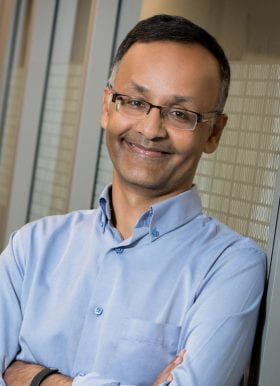
Sanjoy Baruah
PhD, The University of Texas at Austin, 1993
MS, The University of Texas at Austin, 1989
B. Tech, The Indian Institute of Technology – Delhi, 1987
- Email: baruah@wustl.edu
Sanjoy Baruah’s research is in scheduling theory; real-time and safety-critical system design; computer networks; resource allocation and sharing in distributed computing environments.
Professor Baruah joined Washington University in St. Louis in September 2017. He was previously at the University of North Carolina at Chapel Hill (1999-2017) and the University of Vermont (1993-1999). His research interests and activities are in real-time and safety-critical system design, scheduling theory, resource allocation and sharing in distributed computing environments, and algorithm design and analysis. He is a Fellow of the IEEE, and the recipient of the 2014 Outstanding Technical Contributions and Leadership Award of the IEEE Technical Committee on Real-Time Systems.

Christopher Gill
DSc, Washington University in St. Louis, 2002
MS, Missouri University of Science & Technology, 1997
BA, Washington University in St. Louis, 1987
- Email: cdgill@wustl.edu
Professor Gill’s research focuses on assuring properties of distributed real-time and embedded systems in which software complexity, unpredictable environments, and heterogeneous platforms demand novel solutions that are grounded in sound theory.
A major goal of his work is to assure that constraints on timing, memory footprint, fault-tolerance, and other system properties can be met when system software is re-used across heterogeneous applications, operating environments and deployment platforms.

Roch Guérin
PhD, California Institute of Technology, 1986
MS, California Institute of Technology, 1984
BS, ENST Paris
- Email: guerin@wustl.edu
Roch Guérin is an international leader in the field of computer networking, both for his major research contributions and his dedication to serving the community. He is widely recognized for his contributions to understanding the fundamentals of data network design and how networks can be designed to provide desired quality of service guarantees. His work was among the earliest in this area and is credited with laying the foundation for later work. He also made early contributions in wireless and cellular networks. His current research interests are in networked systems including aspects of network economics.
He has published research in a variety of journals and served on advisory boards of international telecommunications companies. He is an ACM and IEEE Fellow and since 2013 has been a member of the ACM Publications Board.
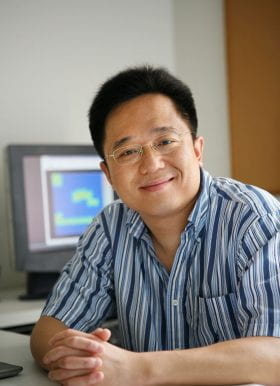
Chenyang Lu
PhD, University of Virginia, 2001
MS, Chinese Academy of Sciences, 1997
BS, University of Science and Technology of China, 1995
- Email: lu@wustl.edu
Professor Lu is the Fullgraf Professor in the Department of Computer Science & Engineering at Washington University in St. Louis. He is Editor-in-Chief of ACM Transactions on Sensor Networks, Area Editor of IEEE Internet of Things Journal and Associate Editor of the new ACM Transactions on Cyber-Physical Systems and Real-Time Systems. He also chaired premier conferences such as IEEE Real-Time Systems Symposium (RTSS), ACM/IEEE International Conference on Cyber-Physical Systems (ICCPS) and ACM Conference on Embedded Networked Sensor Systems (SenSys). He is the author and co-author of over 150 research papers with over 13,000 citations and an h-index of 52.

Alvitta Ottley
PhD, Tufts University, 2016
MS, Tufts University, 2013
- Email: alvitta@wustl.edu
Alvitta Ottley’s current research interests include information visualization, human-computer interaction and visual analytics. Previously funded by NSF and U.S. Army, her research pursues areas such as learning and modeling user behavior, individual differences, and personalized health risk communication. Her work has been published in leading conferences and journals such as CHI, InfoVis, VAST and TVCG.
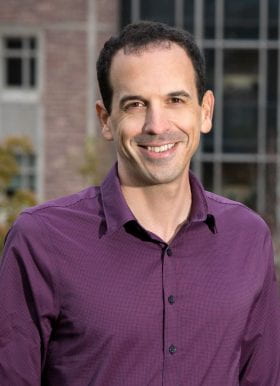
Netanel Raviv
PhD, Computer Science, Technion, Haifa, Israel, 2017
MSc, Computer Science, Technion, Haifa, Israel, 2013
BSc, Mathematics and Computer Science, Technion, Haifa, Israel, 2010
- Email: netanel.raviv@wustl.edu
Netanel Raviv’s research revolves around applications of various mathematical tools to problems in distributed environments, privacy and machine learning. The focus is given on the design of provable methods which provide noise resiliency, adversarial robustness and information-theoretic privacy in distributed computation and storage. Prof. Raviv is mostly interested in tools from error correcting codes and discrete mathematics, and applications such as neural networks, cloud computing and private information retrieval.
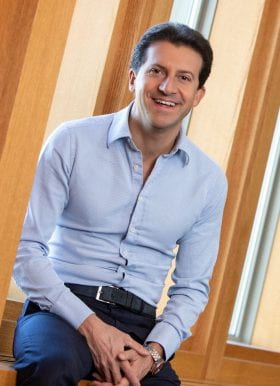
Bruno Sinopoli
PhD, MS, electrical engineering, University of California, Berkeley
BS, electrical engineering, Università di Padova in Padua, Italy
- Email: bsinopoli@wustl.edu
Sinopoli comes to Washington University from Carnegie Mellon University, where he was a professor in the Department of Electrical & Computer Engineering and co-director of the Smart Infrastructure Institute. He also had appointments in the Robotics Institute and in Mechanical Engineering.
In 2010, he received the George Tallman Ladd Research Award from the Carnegie Institute of Technology at Carnegie Mellon, as well as an NSF CAREER Award, which is awarded to junior faculty who model the role of teacher-scholar through outstanding research, excellent education and the integration of education and research.
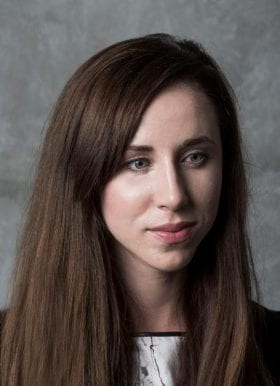
Constance Vale
MArch, Yale School of Architecture; BFA, Parsons School of Design
- Email: constancevale@wustl.edu
Constance Vale directs The Factory of Smoke and Mirrors, an experimental research practice that undertakes aesthetic and conceptual investigations in the territory between architecture, art, and theatre. She is an assistant professor of architecture at Washington University in St. Louis and has previously taught at SCI-Arc and the University of California, Los Angeles. Vale’s work has been exhibited at the A+D Museum and published in the Journal of the American Institute of Architects, the Los Angeles Times, Archinect, and CLOG. In 2015, Vale collaborated with Emmett Zeifman to complete a temporary pavilion in downtown Los Angeles for the experimental opera Hopscotch. She is co-authoring the forthcoming Graham Foundation-supported book Mute Icons, with Marcelo Spina and Georgina Huljich.
Vale earned a MArch from Yale School of Architecture, where she received the Moulton Andrus Award for Excellence in Art and Architecture and two Feldman Nominations, and a BFA from Parsons School of Design. She has practiced at nationally and internationally recognized offices in Los Angeles, New York City, and her hometown of Pittsburgh.

Yevgeniy Vorobeychik
PhD, University of Michigan 2008
MSE, University of Michigan, 2004
BS, Northwestern University, 2002
- Email: yvorobeychik@wustl.edu
Yevgeniy Vorobeychik’s work focuses on game theoretic modeling of security and privacy, adversarial machine learning, algorithmic and behavioral game theory and incentive design, optimization, agent-based modeling, complex systems, network science and epidemic control.
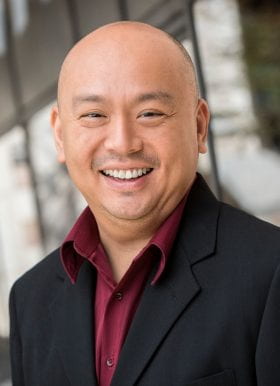
William Yeoh
PhD, University of Southern California, 2010
MS, University of Southern California, 2007
BSE, University of Pennsylvania, 2004
- Email: wyeoh@wustl.edu
Professor Yeoh’s research focuses on artificial intelligence with an emphasis on developing optimization algorithms for agent-based systems. His primary expertise is in distributed constraint optimization, where his goal is to develop and deploy such algorithms in multi-agent systems including smart grid and smart home applications as well as cloud and edge computing applications. His research has been funded by the National Science Foundation (NSF) as well as the Defense Advanced Research Projects Agency (DARPA).
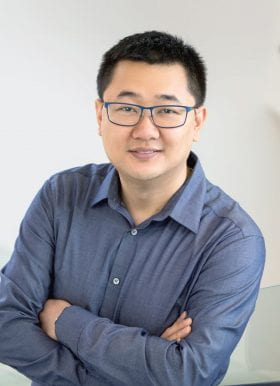
Ning Zhang
PhD, Virginia Polytechnic Institute and State University, 2016
MS, Worcester Polytechnic Institute, 2011
BS, MS, University of Massachusetts Amherst, 2007
Professor Zhang’s research focus is system security, which lies at the intersection of security, computer architecture and programming language. He is particularly interested in secure software/hardware systems, side-channel analysis, malware and digital forensics. He is also interested in developing new methods to automatically discover and mitigate system vulnerabilities.
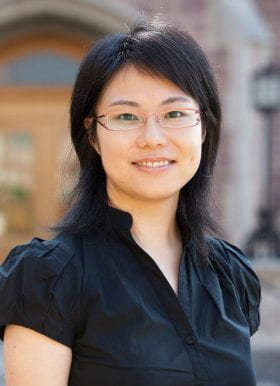
Xuan Zhang
PhD, Cornell University, 2012
MS, Cornell University, 2009
BEng, Tsinghua University, 2006
- Email: xuan.zhang@wustl.edu
Xuan ‘Silvia’ Zhang works across the fields of robotics, system engineering, VLSI, and computer architecture. Her research interests are miniaturization and optimization of autonomous systems for performance, reliability, security, and energy efficiency, with diverse applications in micro-robotics, Internet-of-Things (IoT), wearable/implantable devices, ubiquitous computing, and resilient cyber-physical systems.